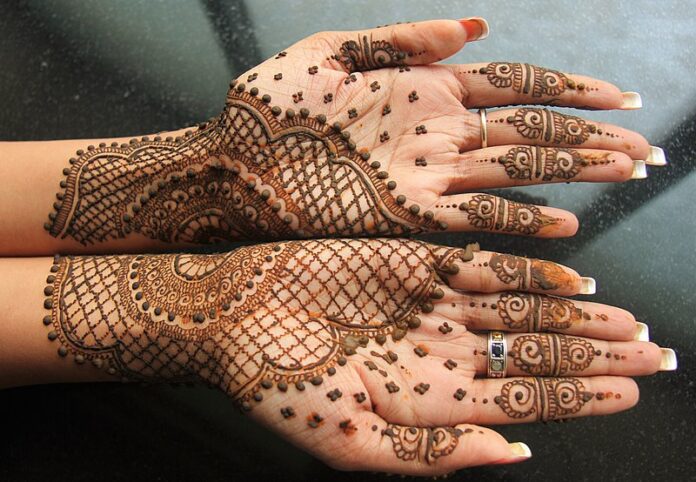As communities eagerly prepare for the upcoming Eid Al Fitr celebrations, adorned with the age-old tradition of henna application, a stark warning from dermatologists has cast a shadow over the festivities. Dr. Eman Kotb, a specialist in Dermatology & Aesthetics at Medcare-Dubai, has sounded the alarm regarding the potential hazards associated with the use of black and white henna.
The intricate artistry of henna, which has long been cherished as a symbol of beauty and cultural heritage, is undergoing scrutiny due to the presence of synthetic chemicals in certain variants. Dr. Kotb emphasized that authentic henna naturally exhibits an orange/brown coloration, dispelling the notion of black or white henna. She highlighted the alarming fact that many commercially available black henna products contain para-phenylenediamine (PPD), a chemical commonly found in hair dyes.
According to Dr. Kotb, the inclusion of PPD in black henna can trigger severe allergic reactions in individuals, ranging from inflammation and itching to blistering of the skin. These reactions not only cause immediate discomfort but can also lead to long-term consequences such as permanent scarring and disfigurement. Furthermore, the dermatologist cautioned against the use of white henna, which may harbor additional harmful substances that pose similar risks to the skin.
As henna application gains popularity during festive occasions, Dr. Kotb urged the public to exercise caution and prioritize safety when selecting henna products. She advised individuals to opt for natural henna, devoid of synthetic additives, and emphasized the importance of conducting patch tests before full application to mitigate the risk of adverse reactions.
In light of these warnings, Dr. Kotb underscored the necessity for heightened awareness and education regarding the potential health risks associated with black and white henna. She encouraged individuals to seek professional guidance from dermatologists to ensure safe and enjoyable celebrations devoid of any health complications.
As communities navigate the cultural traditions of Eid Al Fitr, Dr. Kotb’s cautionary message serves as a timely reminder to prioritize health and well-being, steering clear of potential hazards lurking within the seemingly innocuous allure of henna artistry.



